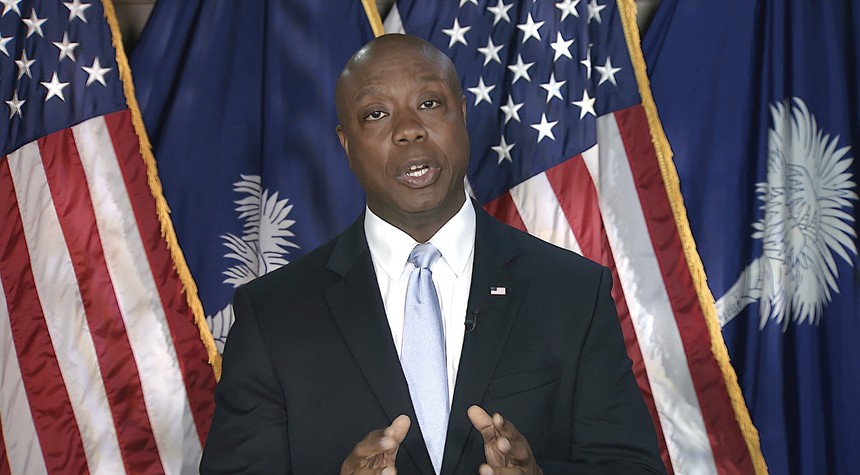subversive campaign strategizing.
There is little doubt in people’s minds that Manhattan District Attorney Alvin Bragg’s indictment of former President Donald Trump is politically motivated. Polls show that 60 percent of Americans believe it to be the case, including 70 percent of independent voters, and even 30 percent of Democrats.
Bragg has so far failed to reveal any legal merit to his prosecution, especially since he bumped the charges from misdemeanors to felonies. Incidentally, his tenure as district attorney has been marred with a staggering 22 percent increase in crime, partly due to his decision to downgrade 52 percent of felony charges to misdemeanors.
The double standards employed in this case are clear as day and the public relations repercussions of Bragg’s actions did nothing but favor Trump’s bid for his party’s nomination for the presidential election next year. In the 48 hours following his arraignment in a New York City court, the Trump campaign took in more than $5 million in donations, while the great majority of the Republican Party rallied behind the former president, including some of his prospective competitors in the primaries.
Needless to say, Bragg’s rationale in pursuing such a reckless line of action deserves scrutiny. The general consensus in the media is that he is catering to a more radical segment of New York liberal voters. He hopes to shore up support, especially given his dismal record on the job.
As a campaign strategist, however, I am currently observing a masterclass in subversive campaigning on the part of the Democrats, not very dissimilar in logic to the approach they adopted during the last midterm elections, pulling an upset when they managed to tame the expected “red wave.”
Observers were baffled as to why the Democrats’ campaign talking points veered from vital issues of the day, including the poor state of the economy and the Biden Administration’s humiliating foreign policy choices, in favor of seemingly secondary subjects such as gender politics and abortion rights.
It turned out that some strategists in their campaign were thinking outside the box and figured that they were unable to convince Republicans to switch camps or independents to vote for a party that is clearly mismanaging the country. They could, however, prioritize consolidating their own voters, guaranteeing high voter turnout and commitment, particularly in swing states.
They did so by focusing on priming their constituency as a mechanism of self-defense against the Republican onslaught. Priming is a cognitive process that takes place when people are exposed to consistent value and moral attributes in the media, making them form judgment and assign blame in accordance with the mediated message. An interesting aspect of priming is that it bypasses rational processes and relies on emotive responses, thus making even the most educated vulnerable to its effects, while only ideological bias shields viewers, or in this case, consolidates their worldview and commitment to the cause.
By focusing on issues that were important to their own base, they guaranteed fervent support. Democrat strategists also left the GOP to blunder and lose an election that was practically in their collective pocket. Poor choice of candidates, being incapable of efficiently communicating with the electorate, and a general aversion to some of the party’s choices coalesced to hand the Republicans a bitter wake up call.
This was because all three of these problems centered around one key figure: Donald Trump.
The majority of the candidates he backed lost what were supposed to be guaranteed races, most notably in purple states. In many instances, these individuals had no charisma and, instead of focusing on what should have been the main campaign talking points, decided to spend their time swearing fealty to Trump and publicly supporting his claims to a supposed victory in the 2020 presidential election, an issue which was well in the voters’ rearview mirror.
Naturally, many who were expected to vote red did not like what they were being offered. They saw sycophants, rather than candidates who would stand up for their constituents.
Pennsylvania is the most notable example. Mehmet Oz, a TV personality, completely failed to translate his on-screen charisma and connect to voters, losing the race to John Fetterman who was both physically and mentally incapacitated. Aside from being a poor choice to stand for a Senate seat in Pennsylvania, a state he never lived in a day in his life, Oz’s talking points revolved around blind support for Trump.
As polls consistently showed him trailing, Oz changed his entire communication strategy the last month prior to Election Day, distancing himself from Trump and focusing more on pressing issues like the economy. It was during that month that Oz’s numbers went up. Fifty-eight percent of voters who made up their minds during that period began to favor him over Fetterman, who received the support of 39 percent of the same category.
It was clear that while Trump maintained solid control over the Republican Party, the general electorate was not favorable to his political name brand. Indeed, the one race in which Republicans performed admirably well was Florida, where Governor Ron DeSantis’s shining star and leadership dwarfed Trump’s role and presence, a point which was not lost on the former president, who immediately began attacking his potential rival.
And this is the exact scenarios Democrats would have been anxious to avoid at all cost. For all practical purposes, and as things stand, Trump is effectively unelectable, as he continues to alienate large swaths of the American general voting public. His communication style and substance in particular never evolved past the last presidential elections, even after his defeat in the midterms.
Rising Republican stars like DeSantis or even Mike Pompeo, who share Trump’s conservative and nationalist political program—and some might argue were more successful implementing it —have a serious chance to clench their party’s nomination in the upcoming primaries. These candidates, lacking Trump’s personal baggage and character flaws, would be a viable option to the majority of the American public, which is primarily comprised of independent voters. If this were to happen, a decrepit Biden who can barely formulate a coherent sentence, let alone implement policies that benefit Americans, would probably stand very little chance at being reelected in 2024.
Biden’s only chance of a salutary outcome in 2024 would materialize if Trump were to be his rival. If anything, Bragg’s charges seem to be a step in this direction, guaranteeing Trump his party’s nomination, a far cry from where he currently stands.
Indeed, while present polls favor him over DeSantis, the former president is in a very insecure position. The Florida governor has not officially declared his intention to run; his numbers will necessarily soar when this happens. Trump’s Republican detractors have yet to throw their hat behind any of his opponents. Other contenders who currently poll in the single digits could also converge around an alternative to Trump, particularly DeSantis, who is already being presented as the future of the GOP.
In essence, prior to being charged, Trump did not possess a comfortable lead. But, Bragg’s fiasco looks like it might have just secured the former president his party’s nomination before a single primary vote is cast. The ridiculousness of these theatricals, especially given their legal merit, indicates that there might be some insidious purpose at play.
If indeed this is the same out-of-the-box thinking that governed the Democrats’ strategy during the midterms, we could be witnessing a masterclass in subversive campaign strategizing.
Republicans are left with only one plan of action: recognize their limitations, let go of their handicap, and choose a viable candidate who can lead them to victory in 2024. This stems directly from recognizing that any candidate they put forth must appeal to the entire American voting public, and not only the GOP. Luckily, the party does not lack candidates who can carry the torch for the Right.
As for Trump, now should be the time when he decides whether he wants to continue on this path of self-sabotage, or move aside his personal ambition, as he promotes the new vision for the GOP, albeit under different leadership. It will probably still be called Trumpism and have as much impact as Reaganism had in the 1980s. If anything, this is the only way in which he can secure a lasting legacy. Bravado and ego will not do that on their own.








